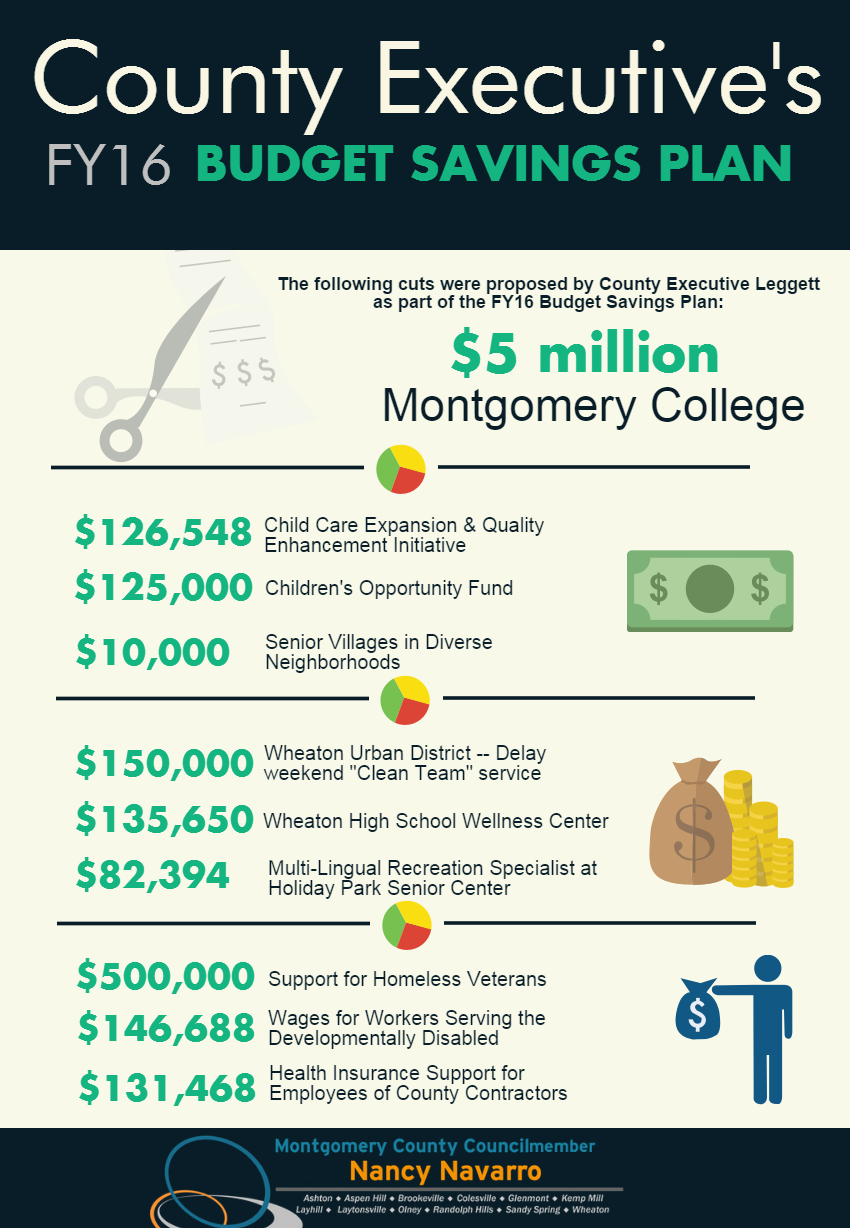Councilmembers Navarro and Riemer Partnered In Legislation to Provide Quality Enhancement Initiative And Create Strategic Plan for Child Care Expansion
ROCKVILLE, Md., May 5, 2015—The Montgomery County Council today unanimously approved Bill 11-15 that will expand affordable, quality child care services in the County and develop a strategic plan for child care services.
Bill 11-15 is the Child Care Expansion and Quality Enhancement Initiative. The bill’s lead sponsors are Councilmembers Nancy Navarro and Hans Riemer. The bill was co-sponsored by Councilmembers Roger Berliner, Marc Elrich, Nancy Floreen, Tom Hucker, Sidney Katz, George Leventhal and Craig Rice.
The approved legislation requires the County Executive to designate a Child Care and Early Education Officer in the Department of Health and Human Services (DHHS), establishes the Early Childhood Advisory Council and creates a Child Care Expansion and Quality Enhancement Initiative focusing on family child care providers.
The new DHHS policy officer must develop a data-driven strategic plan that defines the child care needs in the County and maps a path to universal access to affordable, quality care. The policy officer must also participate in the selection process for providers located in public spaces.
“My top priority has been, and continues to be, ensuring our lowest-income and most vulnerable families have access to quality, affordable child care,” said Councilmember Navarro, who as an appointee to the President’s Commission on Educational Excellence for Hispanics serves on the Early Childhood Education Committee. “The first five years of a child’s life is key in predicting future academic success. Every dollar we spend toward quality early care and education will save taxpayers 10-fold in the future. Closing the academic achievement gap does not begin in kindergarten—it starts with quality child care at a licensed home or center.
“The Child Care Expansion and Quality Enhancement Initiative is an important step toward County Government prioritizing early care and education by creating new structures—a high-level DHHS position, a coordinating council and culturally competent support for family child care providers. The Council’s approval of Bill 11-15 reinforces our commitment to investing in our future.”
Bill 11-15 requires DHHS to hold informational sessions for prospective family child care providers about how to become licensed providers. It also requires DHHS to provide the following services to family child care providers: technical assistance and business training; site-visits, if requested; feedback and assistance to obtain licenses; and services in Spanish and other languages.
The bill also requires that an annual report be delivered to the Council by Feb. 1 of each year about the activities, accomplishments and plans of DHHS related to the initiative and an assessment of the County’s child care needs.
“As fast as child care costs are rising in Montgomery County, this need is becoming as big of an affordability crisis as higher education has already become,” said Councilmember Riemer. “How can families really be expected to pay for child care, save for college and retirement and have anything left? In his 2015 State of the Union Address, President Barack Obama said, ‘It is time we stop treating child care as a side issue, or a women’s issue, and treat it like the national economic priority that it is for all of us,’ I couldn’t agree more. And I know there are a lot of dads out there who will agree with me when I say that, as a man and a father, child care must be a personal priority for all of us.”
Councilmember Riemer had proposed that an independent Office of Child Care be created with the director reporting directly to the County Executive. However, DHHS suggested the option to create the new, senior-level policy officer position be created within the department. Councilmember Riemer and his colleagues agreed with DHHS’ approach.
There are 477 State-licensed child care centers in the County with the capacity to serve 32,879 children, but the demand for quality child care far exceeds the supply. Data from 2012, provided by the Maryland Child Care Resource Network, estimates that the number of children under 12 with mothers in the workforce in the County is 121,859.
The goals of Bill 11-15 are to generate a strategic plan for child care services in Montgomery County, develop new partnerships, assist potential providers in navigating the procedures required for licensing, increase the number of children being served, and ensure quality child care programs.


 Watch Councilmember Navarro’s Remarks on the FY17 Budget:
Watch Councilmember Navarro’s Remarks on the FY17 Budget:




 We need wholesale reform of how Montgomery County ensures that every family has access to high-quality, affordable child care. I am working with my colleagues on legislation creating a Child Care and Early Education Officer within the Department of Health and Human Services (HHS).
We need wholesale reform of how Montgomery County ensures that every family has access to high-quality, affordable child care. I am working with my colleagues on legislation creating a Child Care and Early Education Officer within the Department of Health and Human Services (HHS).